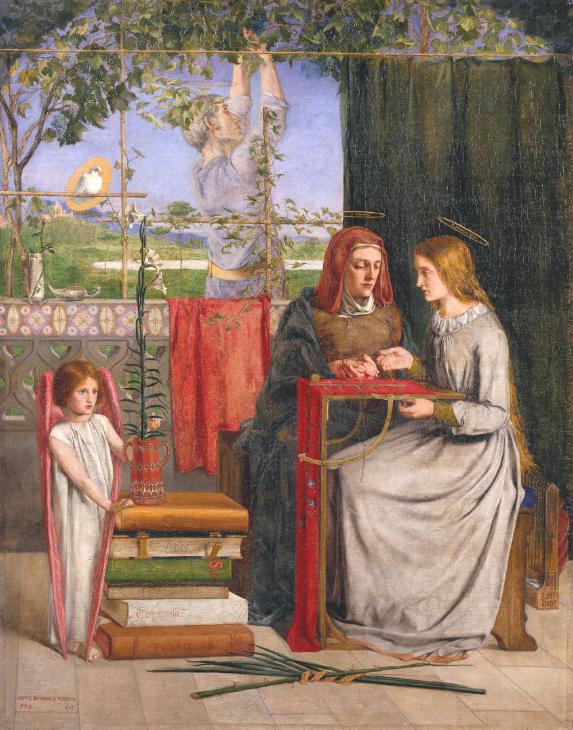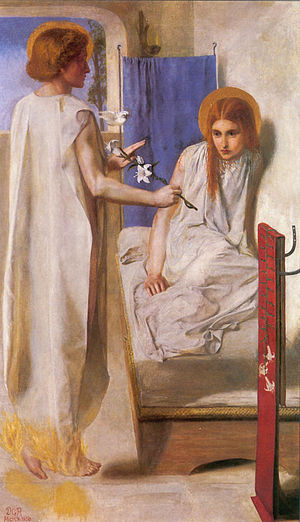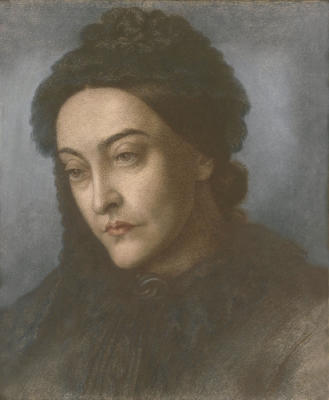Christina Rossetti was born in London to Gabriele Rossetti (Italian poet, scholar and founder of the secret society Carbonari) and Frances Polidori Rossetti (sister to John William Polidori, Lord Byron’s physician, and author of The Vampire).
With such erudite antecedents, it’s no wonder that Christina and her siblings were each, in their own way, creative and bright.
Her brothers William Michael and Dante Gabriel were both founding members of the Pre-Raphaelite Brotherhood. In the early days of the brotherhood, they published The Germ, a periodical that showcased their poetry and illustrations. The sole female contributor, Christina’s poetry was included under the pseudonym Ellen Alleyne.
She was also one of the earliest Pre-Raphaelite models, notably appearing as the Virgin Mary in her brother’s paintings The Girlhood of Mary Virgin and Ecce Ancilla Domini.


Christina is widely known for her fantasy poem Goblin Market, as well as her work The Prince’s Progress and other poems. Her short and intense lyrics in works such as After Death are an example of the strength she exhibited as a poet; she was able to expertly craft evocative and stirring pieces that are still widely admired today.
After Death The curtains were half drawn, the floor was swept And strewn with rushes, rosemary and may Lay thick upon the bed on which I lay, Where through the lattice ivy-shadows crept. He leaned above me, thinking that I slept And could not hear him; but I heard him say, ‘Poor child, poor child’: and as he turned away Came a deep silence, and I knew he wept. He did not touch the shroud, or raise the fold That hid my face, or take my hand in his, Or ruffle the smooth pillows for my head: He did not love me living; but once dead He pitied me; and very sweet it is To know he still is warm though I am cold.

